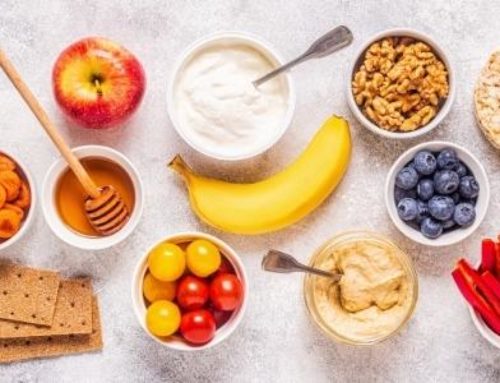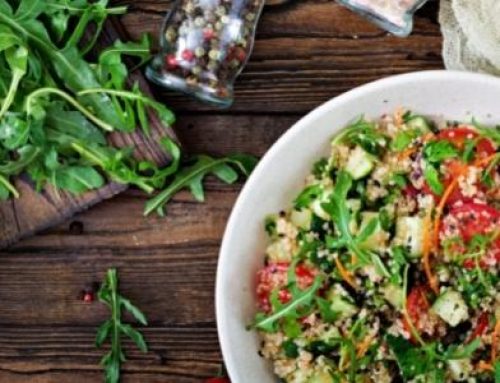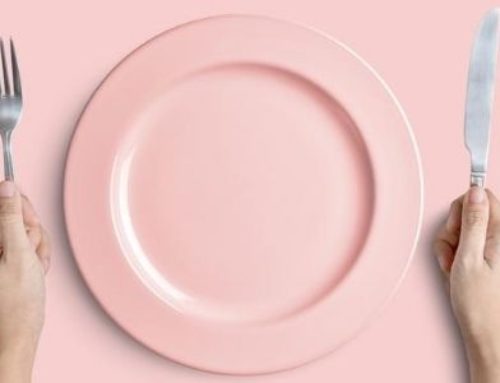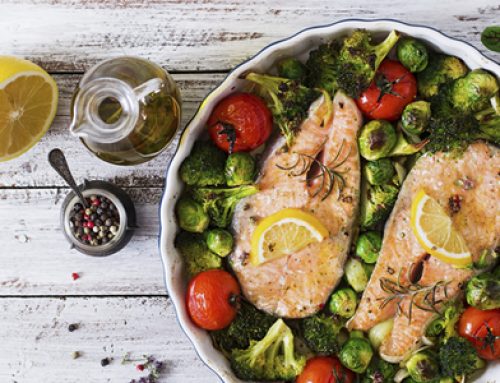
Ask the majority of nutrition or health conscious individuals and most will agree that reducing added sugars from our diet is a step towards reducing the risk of many chronic diseases.
Reducing sugar sweetened beverages (or SSB as they’re known in the academic world) are a prime candidate where making a small change could potentially have a large impact. SSB’s are the poster child for “empty” calories and provide little benefit apart from enjoyment, fuel and hydration, all of which could be achieved through better options.
But this leaves open a window of opportunity. A window that manufacturers have rightly jumped through. If people love soft drinks and sweet beverages as much as we think (which we do) but they offer little benefit and potentially a lot of harm, than the obvious solution would be soft drinks without the sugar.
Enter artificial sweeteners, or as I prefer (seems to scare people less) non-nutritive sweeteners (NNS). Non-nutritive sweeteners are and have been a hotly debated topic in the world of nutrition and health for years. The majority of people’s feelings often echo this health “professional’s” statement below:
Most diet soft drinks are made up of synthetic chemicals that offer absolutely no nutritional value whatsoever. I would honestly prefer my clients drank the regular sugar filled versions if they absolutely had to have some (and that is NOT an invitation for any clients that might be reading this). I have met many people who were consuming literally litres of diet soft drink a day and then wondering why they are unable to lose weight. You have to ditch diet soft drink and replace it with water.
From my discussions with clients and friends, this is the general consensus. Whether this statement is true or false, we’ll discuss shortly, but I’d like to add that this quote is deceptive and unhelpful as it provides no context or explanation.
Moving on…
What are NNS?
Non-nutritive sweeteners are food additives that are so sweet they make sugar taste like gumboot… or if you haven’t experienced that, citrus peel. This allows them to be used in much smaller amounts. They are added to foods and drinks to replace the sweetness that’s normally provided by sugars while avoiding the significant energy that comes with it. This is why they are often marketed as “diet” or “light” options, as they are one way for consumers to potentially reduce energy intake.
All NNS go through comprehensive safety assessments by FSANZ (Food Standards Australia and New Zealand) before being permitted for consumption, with 10 different sweeteners including acesulfame potassium (Ace K), aspartame, cyclamate, saccharin, sucralose and steviol glycosides approved for use in Australia and New Zealand.
Addressing some of the controversy
Remember that quote I posted above? You should, it was literally 30 seconds ago. Anyway, as I said, many of the points made are similar to those I have heard numerous times before.
But is there any truth to them? And is there anything else you should know?
Below I’m going to address what I feel are some of the major controversies related to NNS and some additional pros and cons to hopefully help you make an educated decision.
Are artificial sweeteners harmful to the body?
In my honest opinion, we just don’t know. You can take this as a ‘for’ or ‘against’, it’s up to you. There is a lack of convincing evidence to suggest they’re harmful to humans but there’s also a lack of long term studies in humans. This makes it difficult to make absolute claims that they’re 100% fine being used over a long period of time.
Research that raises concerns about their safety have generally been carried out on animals, not humans, and the dosages used are typically insanely high! So much so that it would be near impossible to eat or drink that much. I’m talking many, many litres per day, in which case I’d be hedging my bets that the rest of your diet isn’t stellar either.
I also believe the word “chemicals” evokes fear in the majority of people. It inherently sets off the “DANGER” alarm within our brain. This is especially true when it comes to the things we put into our precious bodies.
But here’s the thing. Everything we eat and drink is composed of chemical!
Benzaldehyde, linalool, nonane, pentanal, stearic acid, and methylparaben are some pretty frightening names, but they are all chemicals found within a blueberry.
Another relevant example is Aspartame. Aspartame is an artificial sweetener frequently found, along with other sweeteners, in many of the diet soft drinks available. When ingested, aspartame is broken down to the amino acids aspartic acid, phenylalanine and the alcohol methanol.
These individual components are found in much greater amounts in a normal diet rich in fruits, vegetables, meat, and milk. A serving of non-fat milk provides about six times more phenylalanine and 13 times more aspartic acid, whereas a serving of tomato juice has about six times more methanol than an equal volume beverage sweetened 100% with aspartame!
The key is to avoid simple black and white thinking when it comes to the chemicals in your food. It’s not necessarily about “natural” vs. “synthetic” chemicals and it’s always important to remember context. The devil is in the dosage, and in this case, the dosage is usually very very small.
Do diet soft drinks actually help you lose weight?
One of the touted benefits of diet soft drinks is their ability to help with weight loss. They contain significantly less energy than their sugar sweetened counterparts and based on this fact can be a valid tool in any dieter’s weight loss tool belt. But according to the quote above, diet soft drinks are apparently causing the opposite effect! Let’s look at this more closely.
Over recent years there has been speculation that artificial sweeteners may actually increase the risk of becoming overweight! [1]
The problem is, the majority of these studies are all epidemiological studies, which mean they can find associations or relations between two factors but not draw solid conclusions. Even when we look at the weight of the observational research we see inconsistency in the results found, with the largest studies still indicating a small but lower risk of obesity associated with consumption of diet soft drinks. [2]
But what about the studies that found an increased risk?
While we can’t ignore these, it is important to acknowledge a severe limiting factor.
Reverse causality. Basically, instead of these studies pointing towards NNS increasing the risk of obesity, it may be that people who are already overweight may consume ‘diet’ beverages in an attempt to lose weight or reduce weight gain. This suggests that the problem is likely the habits of people who drink diet soda, rather than the diet soda itself.
Evidence from both human and animal studies points towards a decrease in both energy intake and body weight with consumption of artificial sweeteners relative to sugar.[3]
What’s even more interesting is that sweeteners also measure up pretty well against water in terms of reducing energy intake and bodyweight reduction.
While I’m not condoning or advising diet soft drinks over water it does indicate that it’s unlikely that NNS beverages lead to weight gain.
Do non-nutritive sweeteners affect our food preferences and appetite?
Another proposed theory is that artificial sweeteners may lead us to develop a “sweet-tooth” and there-by find it harder to resist sweet, energy dense foods.
Theoretically this makes sense, we know that humans have internal food regulating processes that can be over ridden by highly palatable foods, due to a flood of dopamine in the brain (the feel good hormone) increasing our motivation to seek these foods.
However, both our diet and the brain is complex and it’s hard to establish whether it’s the sweet taste alone or a mixture of energy density, sugar, fat and salt that interfere with our internal regulation.
The evidence on NNS affecting appetite is conflicting but none have yet proven to increase appetite. [4] However, we do know that when a product is labelled as low calorie or ‘diet’, that it can cause individuals to consume more of the product, eat more of accompanying foods within a meal, or eat more later in the day. [5] This also happens with foods labelled “healthy”.
What are the legitimate downsides to diet soda?
By this stage you may be feeling more confused then when you started. So for those of you looking for a concrete reason to cut it out, here it is…
Poor dental health. Although sugar in normal soft drinks is also a culprit, the acidity of diet soft drinks can also affect dental health. [6]
So, is it okay to drink?
I came into this article with an open mind. Looking at creating a clear pros and cons list. Unfortunately like most things in nutrition, it’s not so black and white. I regularly consume NNS whether it’s Powerade Zero at the gym, stevia in my coffee of a morning or my favourite, post-mix Coke Zero at the movies with popcorn (talk about high palatability).
This isn’t going to change based off of what I’ve learnt. But it will make me more aware. If the majority of your diet is based around nutrient dense whole foods then having an occasional ‘diet’ soft drink isn’t going to kill you and if you’re trying to lose weight, may be a better choice then the full sugar versions.
As with most things in the nutrition world, NNS appear to be neither inherently good or bad. I see them as a stepping stone to a less sweetened diet which is probably the best health outcome in the long run. However, if you dislike the taste, find you feel better without them, feel that consuming them will lead to increased cravings for sweet foods, then feel free to go without them.
Just recognise that NNS can add to the pleasure of eating for some people too and that these sweeteners can actually assist consumers in improving the quality of the diet. Don’t throw the baby out with the bathwater, if having some NNS within your diet leads to a more nutritious total diet, that’s a step in the right direction.
If you’d like further help with your nutrition please click below:
References:
- Fowler SP, Williams K, Resendez RG, Hunt KJ, Hazuda HP, Stern MP. Fueling the obesity epidemic? Artificially sweetened beverage use and long‐term weight gain. Obesity. 2008 Aug 1;16(8):1894-900.
- Pan A, Malik VS, Hao T, Willett WC, Mozaffarian D, Hu FB. Changes in water and beverage intake and long-term weight changes: results from three prospective cohort studies. International journal of obesity. 2013 Oct 1;37(10):1378-85.
- Rogers PJ, Hogenkamp PS, De Graaf C, Higgs S, Lluch A, Ness AR, Penfold C, Perry R, Putz P, Yeomans MR, Mela DJ. Does low-energy sweetener consumption affect energy intake and body weight? A systematic review, including meta-analyses, of the evidence from human and animal studies. International Journal of Obesity. 2015 Sep 14.
- Mattes RD, Popkin BM. Nonnutritive sweetener consumption in humans: effects on appetite and food intake and their putative mechanisms. The American journal of clinical nutrition. 2009;89(1):1-4.
- Faulkner GP, Pourshahidi LK, Wallace JM, Kerr MA, McCaffrey TA, Livingstone MB. Perceived ‘healthiness’ of foods can influence consumers’ estimations of energy density and appropriate portion size. International journal of obesity. 2014 Jan 1;38(1):106-12.
- Kaplowitz GJ. An update on the dangers of soda pop. Dental assistant (Chicago, Ill.: 1994). 2010 Dec;80(4):14-6.





